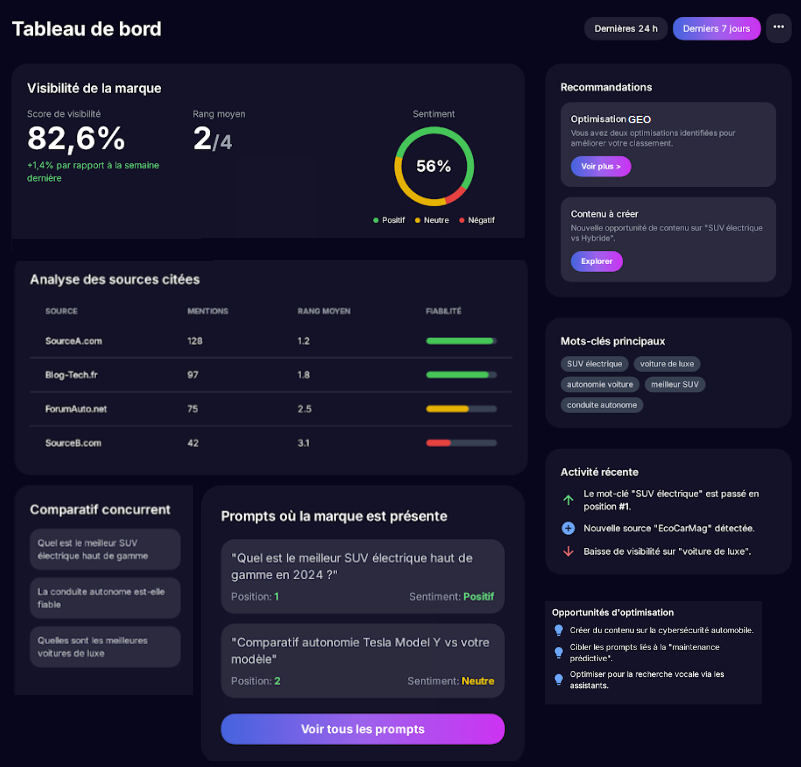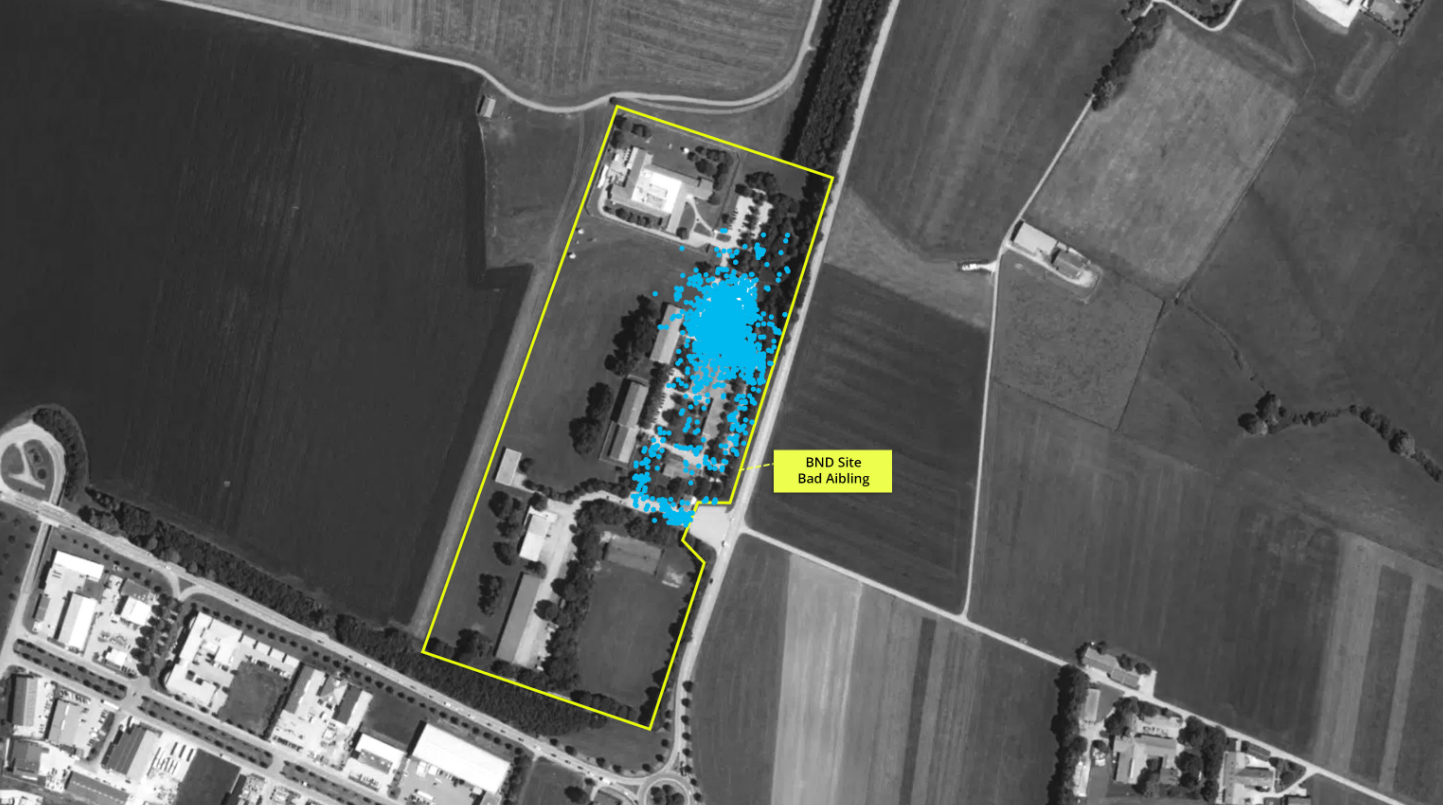
“Photos remind us of the people we love — family far away, moments long gone, voices we can’t hear anymore. Our homes are full of smart devices, but none of that bring warmth, presence, or connection.”
Source : Vinabot

“Photos remind us of the people we love — family far away, moments long gone, voices we can’t hear anymore. Our homes are full of smart devices, but none of that bring warmth, presence, or connection.”
Source : Vinabot

“The Deloitte report contained false citations, pulled from made-up academic papers to draw conclusions for cost-effectiveness analyses, and cited real researchers on papers they hadn’t worked on, the Independent found. It included fictional papers coauthored by researchers who said they had never worked together. “Deloitte Canada firmly stands behind the recommendations put forward in our report,” a Deloitte Canada spokesperson told Fortune in a statement. “We are revising the report to make a small number of citation corrections, which do not impact the report findings. AI was not used to write the report; it was selectively used to support a small number of research citations. […] The Canadian government spent just under $1.6 million on the report””

“Placez votre marque en tête des résultats IA Faîtes vous recommander par Chatgpt, Gemini et les IA et convertissez plus d’1 milliard d’utilisateurs en opportunités business.
Minddex insère vos produits dans les réponses des IA, là où se forment les décisions d’achat.”.
Source : Minddex.ai : Le meilleur logiciel de Generative Engine optimization (GEO)

“Dans son style d’apparence factuelle et neutre, Grokipedia développe sur une douzaine de paragraphes (trois sous-parties au total) des thèses donnant crédit au racisme le plus assumé. Citant une poignée d’études d’apparences scientifiques, avec force chiffres qui peuvent jouer ici le rôle d’arguments d’autorité, Grokipedia remet au goût du jour des éléments issus du racisme scientifique du XIXe siècle, dont des éléments de craniométrie (supposée montrer par des mesures du crâne la supériorité des populations blanches ou européennes sur les autres), ou des différences de comportements voire de quotient intellectuel selon l’origine géographique ou la couleur de peau.”
Source : Elon Musk lance Grokipedia, le concurrent raciste et désinformateur de Wikipédia – Next
“Deloitte Australia will partially refund the 440,000 Australian dollars ($290,000) paid by the Australian government for a report that was littered with apparent AI-generated errors, including a fabricated quote from a federal court judgment and references to nonexistent academic research papers. The financial services firm’s report to the Department of Employment and Workplace Relations was originally published on the department’s website in July.
A revised version was published Friday after Chris Rudge, a Sydney University researcher of health and welfare law, said he alerted the media that the report was “full of fabricated references.” Deloitte had reviewed the 237-page report and “confirmed some footnotes and references were incorrect,” the department said in a statement Tuesday. “Deloitte had agreed to repay the final instalment under its contract,” the department said. The amount will be made public after the refund is reimbursed.
Asked to comment on the report’s inaccuracies, Deloitte told The Associated Press in a statement the “matter has been resolved directly with the client.” Deloitte did not respond when asked if the errors were generated by AI. ”

“L’été dernier, Bayerischer Rundfunk (BR, le service public audiovisuel de la Bavière) et le média indépendant netzpolitik.org, défenseur des libertés numériques, ont ainsi révélé, dans toute une série d’articles, qu’il était possible de géolocaliser des personnes à l’intérieur de bâtiments de l’armée et des services de renseignement allemands.Après un bref appel téléphonique, Sebastian Meineck, de netzpolitik.org, avait en effet réussi à obtenir, de la part d’un courtier de données états-unien, un fichier comportant 3,6 milliards de points de localisations collectés sur une période d’environ huit semaines fin 2023.Le fichier lui avait été fourni gratuitement à titre d’échantillon via Datarade, une place de marché en ligne basée à Berlin de mise en relation avec plus de 500 databrokers internationaux, commercialisant près de 600 catégories de données. Un abonnement comprenant des données de localisation mises à jour toutes les heures pour des personnes résidant dans plus de 150 pays lui aurait coûté 14 000 dollars par mois.”
Source : ADINT : les marchands de pub vendent aussi les données GPS de militaires et d’espions – Next
“President Donald Trump kicked off the first day of his presidency by signing a flurry of executive actions, including halting enforcement of the TikTok ban and rolling back the Biden administration’s artificial intelligence order. Having already run the country once before, Trump entered the presidency with the goal of hitting the ground running, having already selected nominees and chairs for key agencies that oversee tech. This time, Trump has the backing of many tech billionaires who attended his inauguration and showed up at his home in Mar-a-Lago. Read on below as we keep track of all the ways Trump is leaving his mark on tech in his first 100 days in office.”
Source : Trump’s first 100 days: all the news affecting the tech industry | The Verge
“I want to stress again that EA is a very serious and intelligent movement promoted by very serious and intelligent people because, to the untrained eye, it can sometimes look like a cult of unhinged narcissists. That Nauru project, for example? That wasn’t the only weird idea the folk at FTX had dreamed up in the name of effective altruism. According to the court filings, the FTX Foundation, the non-profit arm of FTX, had authorised a $300,000 (£230,000) grant to an individual to “write a book about how to figure out what humans’ utility function is (are)”. The foundation also made a $400,000 grant “to an entity that posted animated videos on YouTube related to ‘rationalist and [effective altruism] material’, including videos on ‘grabby aliens’”.
So there you go. Some of the best minds of our generation (or so they’d have you believe) are busying themselves with strategies on grabby aliens and Pacific island bunkers. Is this effective? Is this altruism? I can’t tell you for sure what the future of effective altruism is, but the road to hell is paved with good intentions. ”

“Now, all smart TVs come with ads. But you still pay for the TV. All of that changes today. During the signup process we ask questions about you and your household to optimize your ad experience. Brands in turn, pay for the non-intrusive ad on the Smart Screen. That’s how you get Telly free. Plain and simple. It’s time you got cut in on the deal.”
Source : Telly I The biggest thing to happen to TV since color.

“In one particularly revealing shot, a young woman in a lavender T-shirt sits on the toilet, her shorts pulled down to mid-thigh. The images were not taken by a person, but by development versions of iRobot’s Roomba J7 series robot vacuum. They were then sent to Scale AI, a startup that contracts workers around the world to label audio, photo, and video data used to train artificial intelligence. They were the sorts of scenes that internet-connected devices regularly capture and send back to the cloud—though usually with stricter storage and access controls.”
© 2026 no-Flux
Theme by Anders Noren — Up ↑